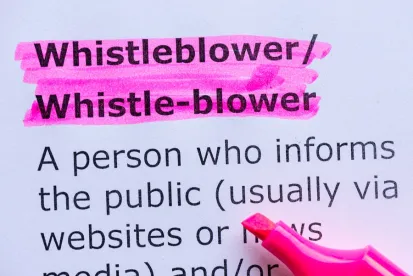Building on our op-ed about the influx of infrastructure bill money giving rise to numerous opportunities for government contracting fraud in the construction sector, the public comment period on the National Telecommunications and Information Administration (NTIA)’s request for comment on broadband grant programs just ended earlier this month. The Department of Justice also needs whistleblowers with knowledge of infrastructure misspending to step up.
As a major part of the Bipartisan Infrastructure Deal (Infrastructure Investment and Jobs Act) of 2021, $65 billion will be allocated to projects that increase access to reliable high-speed internet throughout the country. Of that $65 billion, $42.45 billion funds a program called Broadband Equity, Access, and Deployment (BEAD), which provides grants to states with the intention of connecting underserved areas. The NTIA has 180 days to establish this program and decide how to administer grants. Every state is slated to receive $100 million from BEAD initially. Then, the Federal Communications Commission (FCC) has been charged to create broadband DATA maps denoting where broadband service is and is not available. Further funding is available to states based on a formula outlined in the Act, which utilizes information from the maps regarding the number of unserved locations in high-cost areas divided by the total number of unserved locations in high-cost areas nationwide.
During the public comment period, the NTIA solicited comments from “interested parties,” i.e., broadband providers, regarding “drafting of the Notice of Funding Opportunity for each program, shaping the parameters of program success, guiding program execution, and promoting digital equity and access for all communities.”
In order to meet the lofty goal of delivering reliable Internet to all Americans, contracting broadband providers must submit a five-year action plan outlining how the provider proposes to deploy affordable broadband service, identify locations that should be prioritized for Federal support, make recommendations about how to best serve unserved locations, identify necessary technical assistance, and assess time to build out of universal broadband service in the region.
As emphasized in the Infrastructure Bill discussing this broadband initiative, government contractors are obligated to:
-
Ensure they can carry out the activities they are contracted to do in a manner compliant with all applicable federal, state, and local laws
-
Have the technical and operational capability to provide the services promised in the contract
-
Use government funds in an equitable and nondiscriminatory manner
Contractors certifying that funds have been distributed any other way than the above constitutes fraud. Government IT spending continues to increase year over year, with General Dynamics ($3.8 billion), Leidos Holdings Inc. ($3.2 billion), and L3Harris ($2.6 billion) having the most government IT contracts in 2021. The False Claims Act, with the aid of whistleblowers, can hold government IT/broadband contractors accountable. Under the False Claims Act, employees of broadband providers can report government contracts fraud and may be entitled to 15-25% of the government’s recovery.




 />i
/>i

